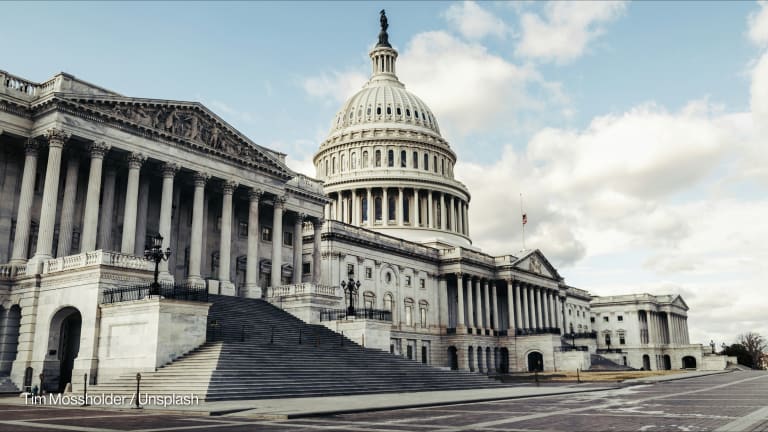
American democracy in crisis, Biden’s agenda gets a boost, and the United Nations’ cash shortage. This week in development:
The world was shocked by scenes of chaos and destruction Wednesday at the United States Capitol, where supporters of President Donald Trump who refuse — at his urging — to accept the legitimate results of the presidential election broke into the halls of Congress, forcing lawmakers to suspend a vote certifying President-elect Joe Biden’s victory and leading to a lockdown of the Capitol complex. Four people reportedly died as a result of the riot, including one who was shot by police. The stunning events marked a violent culmination of Trump’s refusal to encourage or accept a peaceful transfer of power. After rioters were cleared from the Capitol grounds, Congress resumed what is usually a largely ceremonial vote — but this year was witness to obstruction from Trump loyalists. Several lawmakers, meanwhile, lamented that the U.S. is failing the democratic values and norms that officials tout in their trips to more fragile democracies around the world. Biden’s team has already spoken about the need to make democratic restoration a central pillar of its international engagement, but many reflected that it will be more difficult to do so from any place of moral high ground or good example. Governments that have seen pressure from the U.S. on democratic governance used the opportunity to criticize those policies. U.S. government agencies — including those that work on development — have faced an intense political atmosphere in recent months. On Twitter, the U.S. Agency for International Development’s White House liaison vowed to “stand with him [Trump] until the end” and threatened officials who showed themselves to be disloyal.
Democrats officially secured two U.S. Senate seats in the state of Georgia, which granted a slim majority to the party in that congressional chamber, alongside a Democratic majority in the House of Representatives and a Democratic administration in the White House. That combination could give Biden’s development priorities a significant boost, particularly when it comes to more controversial issues such as climate change funding and sexual and reproductive health and rights, experts told Devex. At the same time, aid advocates warned that they should continue to seek bipartisan support for their priorities and noted that hopes of a significant increase in development funding during Biden’s term will likely face head winds from Republicans, who could make debt and budget deficits a bigger concern with Democrats in power.
The United Nations faces its biggest liquidity crisis in decades, largely brought on by unpaid contributions from the U.S. government, which owes the international body over $1 billion for peacekeeping and has not delivered more than $630 million in outstanding payments to the U.N.’s core budget. “It makes it difficult for the U.N. to do its job effectively when there is a cash flow issue as a result of late [payments] or nonpayments. And it also makes it a challenge in terms of American leadership at the U.N. when we are viewed as not having better financial agreements, whether it is negotiating texts in the Security Council, or various other U.N. forums,” said Peter Yeo, president at the Better World Campaign. The U.S. government owes $203 million to the World Health Organization and has redirected roughly $300 million in WHO funding to “alternate partners.” Biden’s team has signaled its intention to make reengagement with the U.N. a central priority, and advocates will be looking for early indications it will restore U.S. funding levels — and also deliver contributions on time, which is a perennial problem.
WHO’s pandemic response efforts have been stymied by a lack of cooperation from China. Two members of an investigative team en route to Wuhan to investigate the origins of the novel coronavirus were denied entry visas, and the international body was forced to delay its fact-finding mission. While Chinese officials say the details and registrations were still being worked out, WHO Director-General Tedros Adhanom Ghebreyesus said he was “very disappointed” by the roadblock. The origins of the COVID-19 pandemic are still subject to debate.








